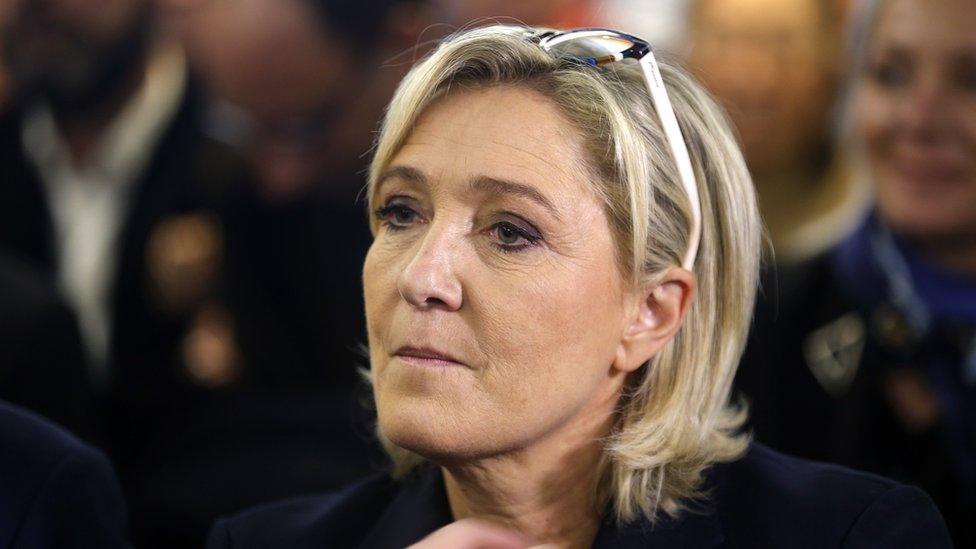Benoit Hamon to be Socialist candidate in French election
- Published
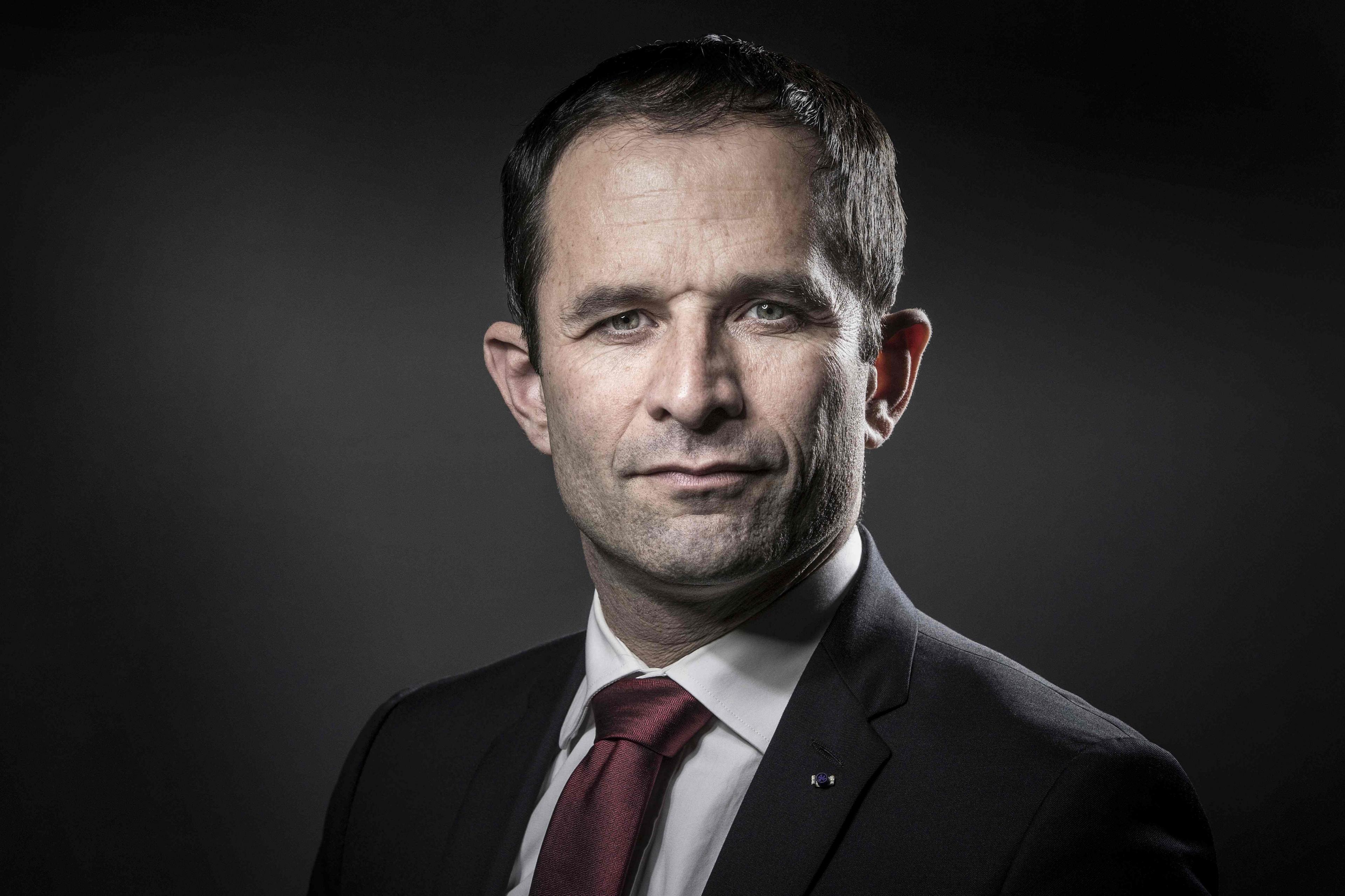
French left-wing politician Benoit Hamon won the second round of voting convincingly
Benoit Hamon will be the French Socialist Party's candidate in the presidential elections in April, after winning a run-off vote on Sunday.
The ex-education minister comfortably beat Manuel Valls, a former prime minister, who conceded before the final tally was completed.
The Socialists are not expected to do well in the election.
Outgoing President Francois Hollande, a fellow Socialist, has a very low approval rating.
Conservative Francois Fillon, far-right Marine Le Pen, and centrist Emmanuel Macron lead the polls.
With 60% votes counted in the Socialist run-off, Mr Hamon had just over 58% to Mr Valls' 41%.
After his win was announced, Mr Hamon said: "Despite the differences, the forces of the left have never been so close in terms of ideas. Let's come together."
He called on the Socialist Party, independent left-winger Jean-Luc Melenchon, and a Green candidate to unite and "construct a government majority".
Mr Hamon, 49, was the most left-leaning of the seven initial candidates in the Socialist race, the first round of which was held last week.
He has experienced a surge in popularity from a range of progressive plans, including a proposal for a universal monthly income for all citizens.
He also wants to legalise cannabis, and ditch the labour law passed last year that made it easier to hire and fire.
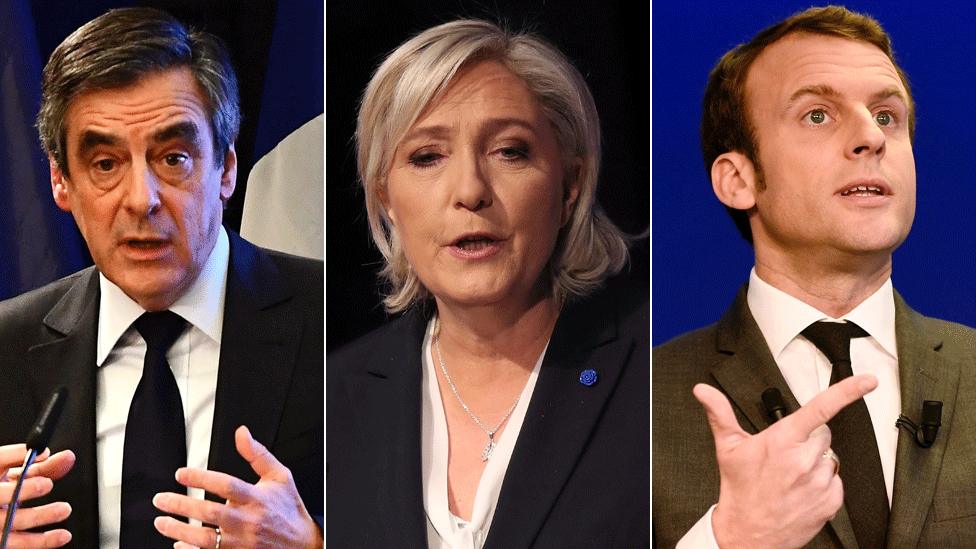
Francois Fillon, Marine Le Pen and Emmanuel Macron lead the field in the presidential race
Anyone was allowed to vote in the primary, even those who were not party members.
Organisers said the turnout was much higher than the previous week, when 1.6 million people cast ballots.
However, there have been reports of mismanagement, with one reporter from news site Buzzfeed, external saying she had been allowed to vote four times in the second round. She said she voided her ballot so as not to affect the outcome.
Journalists from Le Monde , externalnewspaper also claimed they were permitted to vote more than once in the first round.
Mr Valls had built his campaign on his experience gained as prime minister between 2014 and 2016.
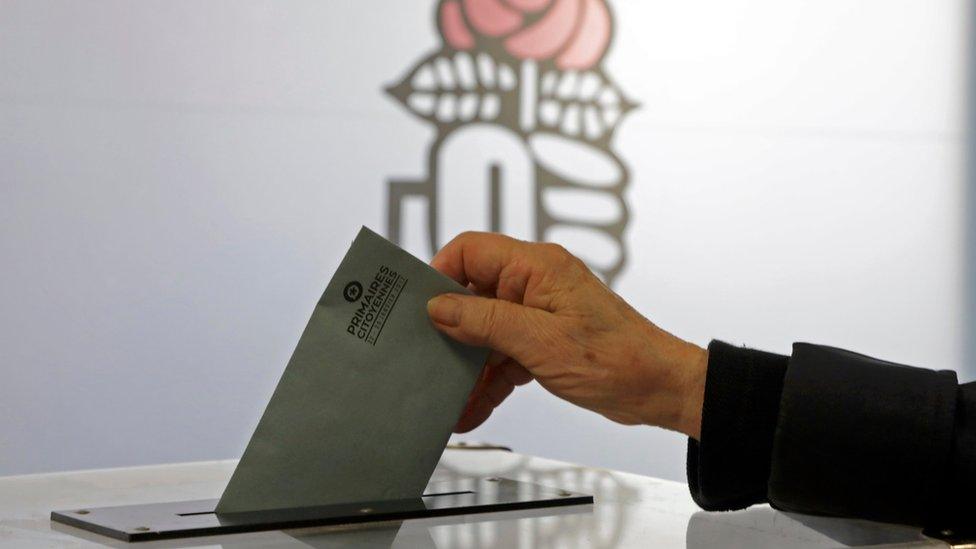
Voters did not have to be Socialist Party members to cast a ballot in the run-off
The presidential race has taken a turn in recent days, with the favourite for the post, Francois Fillon, becoming embroiled in a controversy over payments to his wife for political work - which a French publication claimed there was no evidence she carried out.
Mr Fillon denies the allegations, and said he would drop out of the race if there was enough evidence to launch an investigation.
On Sunday, Mr and Mrs Fillon were side by side at a Paris rally that sought to reinvigorate his candidacy.
"Leave my wife out of the political debate!" he said in his speech, provoking rousing applause from supporters.
Mr Fillon's scandal could potentially be a boost for Marine Le Pen, the anti-immigration hardliner who has pledged to put "native" French people first.
- Published24 January 2017
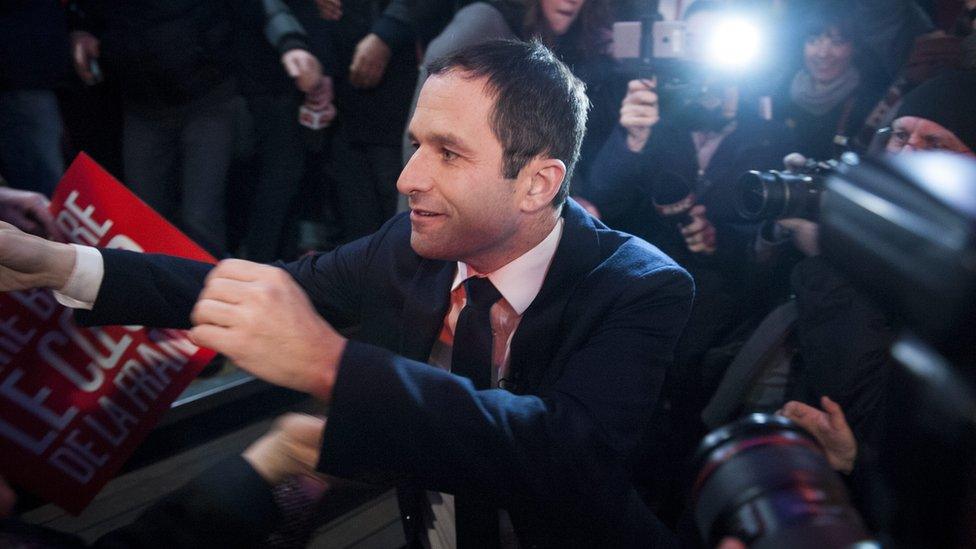
- Published21 January 2017
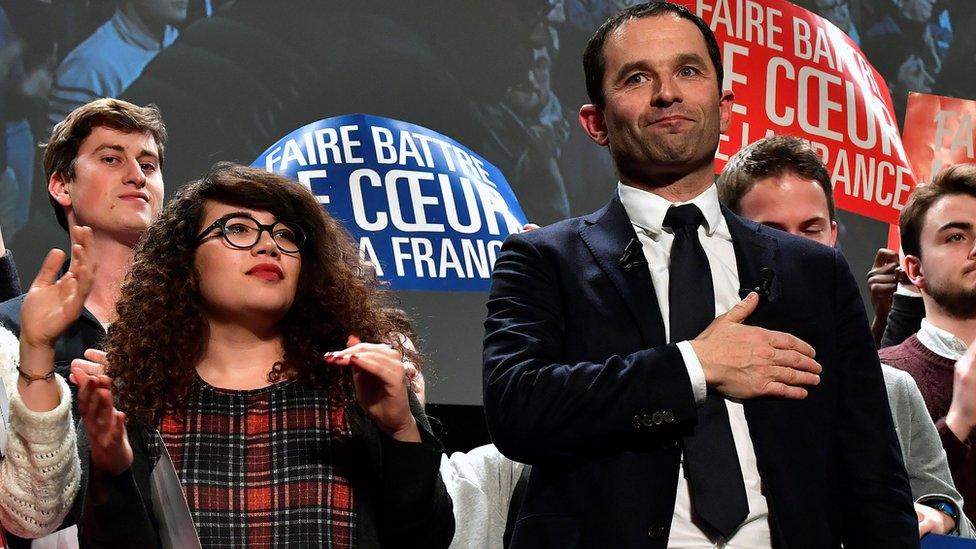
- Published28 March 2017
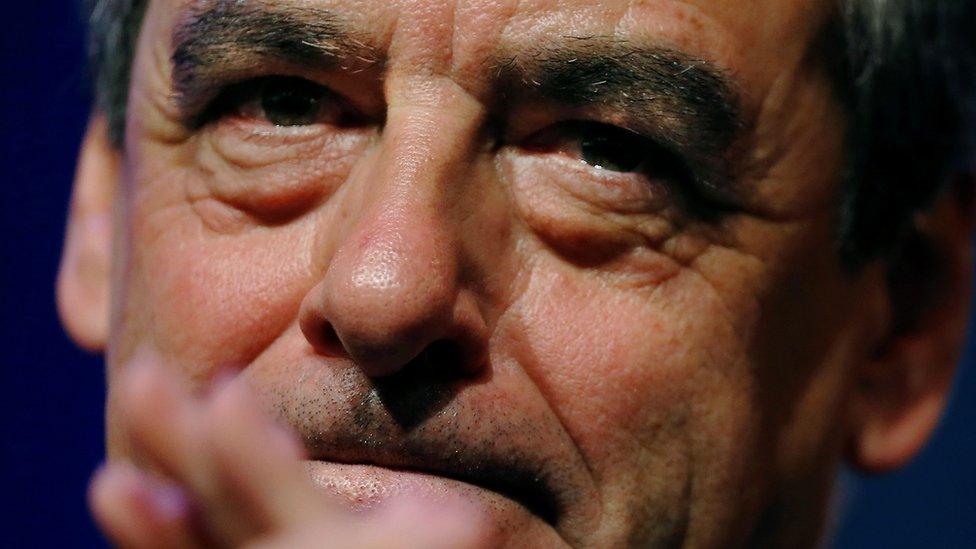
- Published10 February 2017
